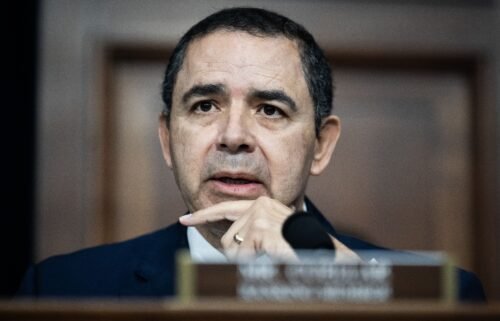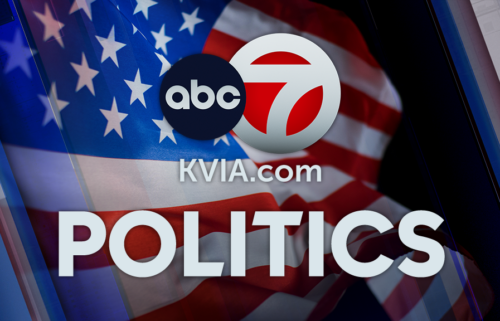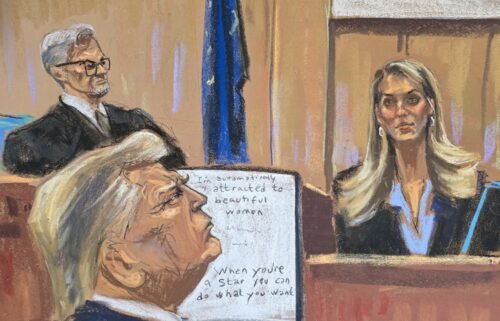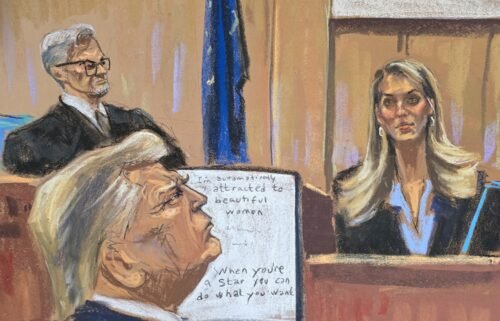Fate of DACA immigrants may hang on vote of Chief Justice Roberts
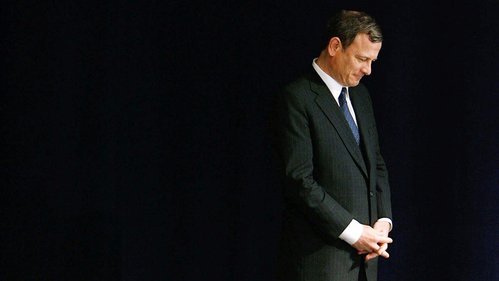
At the close of Supreme Court arguments Tuesday over the fate of certain young undocumented immigrants, the question appeared to be: What will John Roberts do?
The inscrutable chief justice, who sits in the middle of the elevated mahogany bench, was yet again at the decisive middle of a contentious dispute.
His questions, overall, were sympathetic to the Trump administration’s planned rescission of the Obama-era Deferred Action for Childhood Arrivals program. He intimated that prior litigation — finding that a related program deferring deportation for undocumented parents of US citizens was legally flawed — would favor the administration.
Yet Roberts challenged a government lawyer arguing for broad discretion over immigration. The chief justice also questioned how ending the policy would affect the hundreds of thousands of young people who have relied on its benefits and are living and working in the United States.
In the end, Roberts may not be willing to rule in a way that means past DACA recipients suddenly have benefits revoked and face deportation. His remarks left open the possibility that this conservative court would defy predictions and rule against the Trump administration.
Roberts’ vote will ultimately affect the futures of some 700,000 young adults who were brought to this country without authorization. His decision and the court’s overall decision, likely handed down in spring 2020, will also shape public perceptions of the relationship between America’s top jurist and President Donald Trump.
It has been a publicly fraught relationship, in part because of their dueling visions of the federal judiciary. Roberts has tried to counter Trump’s message that his appointees will automatically be on his side, Democratic appointees automatically not.
When a US district judge in California ruled against a Trump asylum policy last year and the President derided him as an “Obama judge,” Roberts issued a statement that said, “We do not have Obama judges or Trump judges, Bush judges or Clinton judges. What we have is an extraordinary group of dedicated judges doing their level best to do equal right to those appearing before them.”
Yet the 5-4 ideological split at the Supreme Court is deep, with the five Republican appointees often voting along conservative lines and the four Democratic appointees taking a liberal stance. Roberts reinforced that divide in 2017 as the Supreme Court upheld the Trump travel ban by a 5-4 vote. But last session in an equally momentous case, he ended up voting — with the liberals — against the administration’s plan to add a citizenship question to the 2020 census.
Roberts’ line of questioning
The familiar divisions seeped into Tuesday’s arguments in the dispute arising from the larger Trump agenda against immigration. The administration’s 2017 declaration attempting to end DACA was challenged immediately, and the consolidated cases heard on Tuesday were brought by California, New York and other states, along with the Regents of the University of California and immigrant rights groups.
During 80 minutes of Q-and-A, the strongest defenders of the 2012 DACA policy were senior liberal Justice Ruth Bader Ginsburg and others on the left. Among those who appeared readiest to accept the Trump administration arguments for the DACA rescission were conservative Justices Samuel Alito and Neil Gorsuch.
An overriding question is whether the Department of Homeland Security’s announced wind-down of DACA in September 2017 was valid. Elaine Duke, then the acting Homeland Security secretary, followed the view of Attorney General Jeff Sessions that DACA was unlawfully instituted and would likely be struck down by federal courts.
In her published memo, Duke noted that lower courts had previously cast doubt on the lawfulness of a related program, Deferred Action for Parents of Americans and Lawful Permanent Residents. Lower court judges had blocked implementation of that program, suggesting President Barack Obama had exceeded his authority when he proposed suspending deportation for certain parents without documentation. Courts, however, had not ruled on the constitutional merits of the challenge brought by Texas and other states, and Supreme Court justices split 4-4 when the dispute reached them. They affirmed a lower court decision in 2016 but set no national precedent.
Roberts referred to that earlier litigation at several turns Tuesday, asking whether it might have provided sufficient grounds for officials seeking to end the DACA program, which postpones deportation and allows young people to obtain work permits.
“Do you need more than that?” Roberts asked California Solicitor General Michael Mongan, one of the lawyers defending DACA on Tuesday. “You’ve got a court of appeals decision affirmed by an equally divided court.”
It is not enough, Mongan argued, based on the substantial interests at stake and minimal rationale for ending DACA offered by the administration (Lower courts had sided with California and the other challengers).
Judges might ultimately agree with the administration, Mongan told Roberts, “if there were some substantial and detailed consideration of the actual costs of this and the reasoned legal analysis … but that’s absolutely not what we have here.”
Roberts separately challenged US Solicitor General Noel Francisco, appealing the lower court rulings against the administration. Francisco urged the justices to rule that Department of Homeland Security immigration policy should not even be subject to court review.
“What if the attorney general said he, in his exercise of prosecutorial discretion, was not going to enforce any of the immigration laws? Would that still be non-reviewable?” Roberts asked.
That would likely present an exception, Francisco said, because that would be “a complete abdication of authority.”
“Here, we are enforcing the law,” Francisco asserted, referring to broad policy against illegal immigration. “You can understand why Congress or the courts might say that you can review a decision not to enforce the law.”
Roberts also suggested in his questioning of Francisco that he might be disinclined to rule in a way that leaves all past DACA recipients vulnerable to the revocation of benefits and facing deportation.
“Now, it’s not always the case when the government acts illegally in a way that affects other people,” Roberts said, “that we go back and untangle all the consequences of that.”
Roberts fleetingly raised the possibility of a decision that, even if the DACA policy were found unlawful, its past use would be valid.
The justices will next take up the dispute in their private conference room Friday. If past practice holds, they will cast preliminary votes and then spend months drafting the majority and dissenting opinions.
During that process, individual justices on each side typically pick up where the lawyers at the lectern left off, hoping to steer the outcome their way.
A ruling is likely by June 2020, when the court traditionally recesses for the summer, and right as the presidential campaign is intensifying.

